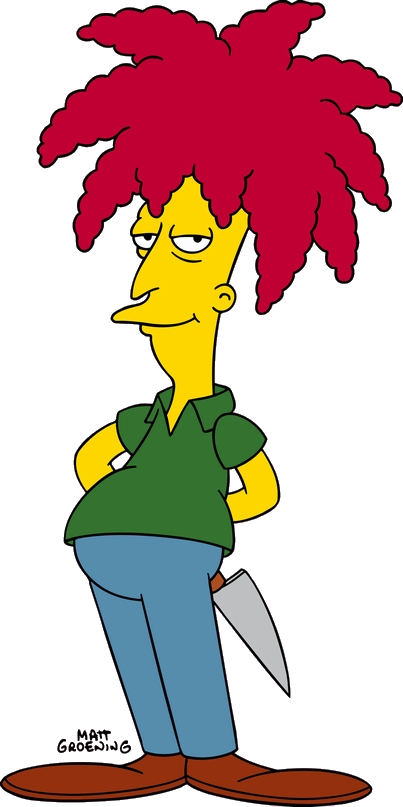
Sideshow Bob is a nasty piece of work, isn’t he? A highly cultured, sophisticated psychopath, he enjoys nothing more than attempting to kill the world’s favourite perennial ten year old, Bart Simpson. But did you know that Bob goes under many different names?
If you are in Latin America, you will know him as Bob Patiño, in the German speaking world he is Tingeltangel-Bob (literally Honkytonk Bob) and in France he is Tahiti Bob. All of which are rather more catchy than the Spanish: Actor Secundario Bob.
The Simpsons is one of the most successful television shows of all time. It is shown daily around the world, in over a dozen languages.
In some countries, such as Sweden, the Netherlands and Portugal, the original American voices are broadcast, with subtitles. When a dubbed version was shown as a children’s cartoon in Sweden, an uproar ensued and the original subtitled English soon returned to the air.
In many countries, however, the characters have been dubbed into the local language.
It’s uncanny hearing someone you know as well as Homer Simpson speaking Mexican Spanish! In Germany, his trademark “D’oh!” is a pained “Nein!”, in Italy, his “woo hoo!” becomes “mitico!” (“mythical!”). Bart’s famous “eat my shorts!” is “Va te faire shampouiner” (“Go shampoo yourself”) in the French dubbing, while the Italian Bart implores people to “Ciucciati il calzino” (“Suck your sock”).
But humour doesn’t travel well. How do the yellow folk of Springfield stay funny?
Homero Simpson
In some languages, the show has been dubbed more than once. In Latin America, Homer is the gruff Homero Simpson, while in Spain he keeps his English name, which is also that of Simpsons creator Matt Groening’s dad.
France and French Canada have two different versions and the jokes are not always translated directly. For example, Kirk Van Houten (Milhouse’s dad) is given a stereotypical Belgian accent in France and Homer’s workmate Carl Carlson is given an indeterminate foreign accent, unlike in English, where he sounds American like his pal Lenny. In the Canadian version, Springfield’s elite speak international French while the common folk speak with strong Québécois accents. Jokes about American politicians are transferred to Canadians.
All of which is good fun, but what happens when TV companies don’t have the budget to get a whole cast of needy, unionised actors in to do the dubbing? Well, in Lithuania Simpsonai is usually shown in a lectored version where one announcer reads the whole translated text and the original voices can be heard lowered in the background. It’s a like being read a bedtime story (in Lithuanian, of course).
Al-Shamshoon
An Arabic version of the show was launched with much fanfare in 2005. “Al Shamshoon” was tailored for the Arabic market, which meant no more beer or bacon for Homer (Omar Shamshoon) and his beloved donuts became traditional Arab cookies called kahk. Poor old Homer could no longer hang out at the sleazy Mo’s Tavern either. Unsurprisingly, the series didn’t make much sense and was pulled just 34 episodes into its 52 episode run.
In China, meanwhile, The Simpsons was banned from being aired during primetime (5:00 to 8:00 PM) in order to help Chinese cartoons gain more viewers.
The Simpsons is the definitive satire on modern American life. While Bart’s spiky hair and Marge’s pearls are look the same from Milan to Mumbai, prepare for a surprise when the Springfielders open their mouths!


